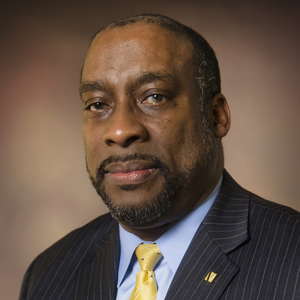Reimagining academic leadership
Academic leadership may be in urgent need of a leadership revolution. At a minimum, we maintain that significant reimagining of academic leadership is long overdue. The disruptions associated with the global pandemic have revealed a need for more agile and equitable systems of leadership. COVID-19 upended many standard practices in higher education. The myriad consequences of the pandemic highlighted the need for rapid leadership pivots and innovations to minimize damage, maintain core functions, and adapt to new delivery modes and styles of learning and working — all while maintaining physical distance and transitioning to new frameworks of engagement.

This moment has brought to the fore the ongoing and significant impact of leadership regarding institutional (in)stability, stewardship of resources or (in)ability to navigate disruptions. Individual institutions routinely deal with the impact of leaders on the transition periods that follow change or disruption as well as on the deployment and implementation of plans to sustain stability. Yet a global disruption such as COVID-19, compounded with national disruptions such as addressing long-term systemic racism, has resulted in systemwide challenges to transition and sustainability in higher education.
While heightened in the current moment, the need for innovations in leadership is long-standing and predated this global crisis. A major need for reimagined leadership emerged due to factors such as rapidly advancing technology, persistent reductions in state and federal appropriations, and escalating enrollment challenges in higher education. The path to new conceptualizations of leadership will require a deviation from norms and thinking differently about persistent issues and pain points in institutional leadership and administration. Significant reimagining will require elevating and altering several aspects of academic leadership culture including selection and preparation, expectations and rewards, and advocating for equitable leadership practices.

Selection and preparation
Individuals who have successfully navigated traditional faculty pathways frequently are selected for advancement into formal academic leadership roles. As Beronda Montgomery discussed in her 2020 paper “Academic leadership: Gatekeeping or groundskeeping,” leadership selection often relies on perceived loyalty to in-groups or traditional measures of success as an individual scholar rather than preparation for leadership through formal training. Leaders are selected based on their demonstrated success as disciplinary scholars and according to traditional metrics of perceived impact. Depending on whether the range of roles of a leadership position is informal or formal, departmental, or college or university wide, leaders may be selected based on perceptions of their relationships with colleagues or governing board members. In most cases, scholarly success and perceived relationship-building ability drive selection rather than formal leadership training, demonstrated ability, prior experience in leading through crisis or innovative, visionary stewardship.
In their 2016 book “Faculty Development in the Age of Evidence: Current Practices, Future Imperatives,” Andrea Beach and colleagues described how formal leadership training is not universally required in higher education. Furthermore, where it occurs, such training frequently emphasizes tactical skills and transactional engagement. Yet the standard one-size-fits-all leadership training protocols no longer apply — if they ever did. New paradigms for leadership preparation and enactment must include cultivating abilities to recognize and detect, as well as to assess and steward, micro- and macro-level changes or needed disruptions within an ecosystem. Leadership selection, development and assessment rarely are driven by cultivation or demonstration of leadership vision and philosophy, according to authors Kendra Cheruvelil and Beronda Montgomery in “Women Leading Change in Academia: Breaking the Glass Ceiling, Cliff, and Slipper.” Additionally, in “Connecting values to leader and leadership development,” Joanne Smikle highlights that a focus on values and values-driven action rarely is incorporated into leadership development.
Recognized limits to innovation and agility in leadership may stem in large part from the traditional ways in which we select and prepare (or fail to intentionally prepare) leaders in academia. Attracting individuals who have the vision, passion and purpose needed for leadership of an entire academic system inclusive of people, infrastructure and resources — or ecosystems-based leadership — may require higher education to revisit the rigid structure of academic leadership positions as well as determinations of who can and should be selected as leaders. Current structures reflect patriarchal constructs and traditions, including noted gender differences in leadership attainment described by Anne Wong and colleagues in the article "What’s the fuss? Gender and academic leadership.” Also prevalent are individual success models that center on traditional hierarchies; for instance, those on a tenure-track faculty path are disproportionately valued for leadership consideration. These systems also value currencies of loyalty, external affirmations and self-preservation in access to and success in leadership roles. Additionally, many academic leadership roles necessitate major time commitments and sacrifices of individual scholarly pursuits and career–life balance or integration.
Reimagined leadership frameworks may expand the pool of potential leaders by elevating flexibility in structure — including collective or shared leadership positions, entrepreneurial approaches to leading, broadened paths of access to leadership positions, and more part-time executive positions that do not require a full pivot from engagement in research or scholarly pursuits. This pool could include nontenured individuals with demonstrated commitment and innovative skills. New selection paradigms could prioritize vision- and values-driven, as well as entrepreneurial, leadership rather than traditional tactical and transactional modes.
Expectations and rewards
In addition to traditional selection paradigms, we often require and reward academic leadership efforts that esteem quantitative metrics aligned with maintaining prestige and standing in select national and international ranking systems. This often has led to selecting leaders who largely maintain a culture of status quo systems and practices. They enact traditional modes of leadership focused on incremental changes to a system to maintain and elevate status, especially national and international ranking, rather than encourage strategic and sustainable creativity, innovation and ecosystem transformation.

Changing expectations and rewards for leadership structures and effectively promoting a shift to leadership based on ecosystems rather than individual success and self-preservation will require revisiting metrics of leadership success. We need to review how we see leadership in terms of a pursuit of personal benefit (including individual career advancement) versus stewardship of and benefit to a larger higher education ecosystem including personal, professional, institutional and society-at-large benefits — not forgetting a view of institutions as economic drivers. Some prior leadership models, such as transformational leadership, are associated with innovation and improved satisfaction of those being led, as discussed by Athena Xenikou in the 2017 paper “Transformational leadership, transactional contingent reward, and organizational identification: The mediating effect of perceived innovation and goal culture orientations.” Transformational leadership, as well as the leadership described as groundskeeping by Montgomery in 2020, are forms of leadership based on stewardship of academic ecosystems.
Common measures of transformational leadership largely focus on traditional quantitative metrics including numbers of new courses, new policies instituted or new or reallocated sources of dollars to support new measures, according to Peter Eckel in “Assessing change and transformation in higher education: An essential task for leaders.” Eckel recognized that transformational leadership can include cultural factors that are more difficult to measure, and these factors often are not used as markers of leaders’ impact or success by governing boards or accreditation bodies.
We argue that measuring the effectiveness of new approaches to leading would require adequately assessing what leaders do, the relationships they cultivate, and the cultural adjustments promoted by leaders. An ability to measure these aspects of leadership would increase the likelihood of assessing both quantitative metrics and qualitative measures such as cultural factors that together contribute to leaders’ success and sustainable change in an ecosystem. Indeed, to accomplish such a complete reimagining of academic leadership will require embracing change at all levels and institutional flexibility about the definitions of excellence and success as a leader as well as an institution.
We need to redirect our understanding of leadership from traditional gatekeeping frameworks tied to narrow definitions of excellence that prize exclusionary, highly selective metrics and single-minded pursuit of rankings and prestige. Instead, we should consider successful academic leadership as the stewardship of complex and diverse ecosystems. We need individuals to drive ecosystem change rather than tending the status quo.
Equitable leadership frameworks
Current challenges have called on academic leaders to go beyond expressing commitments to promote diversity and equity — often in the form of diversity, equity and inclusion statements — to demonstrating lived commitments to equity in their local academic ecosystems. Despite long-term articulated commitments to such issues by leaders and institutions, real progress has been painfully slow. As Emma Whitford describes in the 2020 article “There are so few that have made their way,” Black faculty are disproportionately underrepresented in advanced faculty ranks and administrative roles despite a long-standing focus on promoting diversity among faculty and administrators in higher education. Limits to rapid progress in pursuing equity are evidence of leadership shortfalls. Leaders set strategic direction and cultivate buy-in to support progress in alignment with their interests and lived commitments.

Many leaders also rely on institutional governing boards to drive decisions, which can limit independence of thought and implementation in making decisions. Powerful recent examples have emerged of governing boards reversing or failing to support faculty and leadership decisions related to hiring and review, as reported by Char Adams for a highly visible recent case in the article “UNC withholds tenure for ‘1619 Project’ journalist after conservative backlash.” The leadership interface with boards of directors/trustees can be affected by board members’ sometimes limited understanding of the immediate needs and challenges of a local institutional culture, or by other factors, such as political leanings.
Leaders (and governing boards) must intentionally prioritize increasing the pace of change in diversity, equity and justice, deeming it essential to promote collective focus, structures of accountability and reward, and investments of key resources and capital — including human, financial, social and other critical capital.
Conclusion
The global pandemic presented seismic challenges in higher education, which completely disrupted business as usual. These challenges occurred during a heightened recognition of systemic racism and anti-Black policing in the United States. These synergistic challenges increased an already critical need for agility and cultural competence among academic leaders — traits that rarely are selected for during recruitment or critically assessed during review and reward.
Leaders have had to imagine new modes of operation, deploy them and assess their effectiveness simultaneously in the midst of these dual crises, as previously discussed by Montgomery in 2020. The leadership demands required by these current challenges opened a new opportunity to reflect on how we select and prepare leaders, what prevailing expectations and associated rewards are, and how leaders enact equitable frameworks. Reflections on the impacts of and responses to the global pandemic and recent increased awareness of systemic racism led us to examine and elevate the need to reimagine leadership in higher education more generally.
Next-generation leaders should not only identify and analyze challenges but also acknowledge the value of truth-telling and catalyzing paradigm-shifting institutional change by surmounting the cultural inertia characteristic of academic environments. A more expansive view on the future of effective academic leadership needs to focus broadly on key considerations, including the following questions: What specific models of leadership are needed to reimagine higher education and to bring this reimagination effectively and sustainably to fruition? What must institutions do to transform the process for selecting leaders to guide universities toward an equitable and sustainable future?
We believe this reimagining starts with new paths for preparing, selecting and rewarding individual leaders who are committed to promoting equitable ecosystems and long-term communal success.
Enjoy reading ASBMB Today?
Become a member to receive the print edition four times a year and the digital edition monthly.
Learn moreGet the latest from ASBMB Today
Enter your email address, and we’ll send you a weekly email with recent articles, interviews and more.
Latest in Opinions
Opinions highlights or most popular articles

Women’s health cannot leave rare diseases behind
A physician living with lymphangioleiomyomatosis and a basic scientist explain why patient-driven, trial-ready research is essential to turning momentum into meaningful progress.

Making my spicy brain work for me
Researcher Reid Blanchett reflects on her journey navigating mental health struggles through graduate school. She found a new path in bioinformatics, proving that science can be flexible, forgiving and full of second chances.

The tortoise wins: How slowing down saved my Ph.D.
Graduate student Amy Bounds reflects on how slowing down in the lab not only improved her relationship with work but also made her a more productive scientist.

How pediatric cataracts shaped my scientific journey
Undergraduate student Grace Jones shares how she transformed her childhood cataract diagnosis into a scientific purpose. She explores how biochemistry can bring a clearer vision to others, and how personal history can shape discovery.

Debugging my code and teaching with ChatGPT
AI tools like ChatGPT have changed the way an assistant professor teaches and does research. But, he asserts that real growth still comes from struggle, and educators must help students use AI wisely — as scaffolds, not shortcuts.

AI in the lab: The power of smarter questions
An assistant professor discusses AI's evolution from a buzzword to a trusted research partner. It helps streamline reviews, troubleshoot code, save time and spark ideas, but its success relies on combining AI with expertise and critical thinking.


